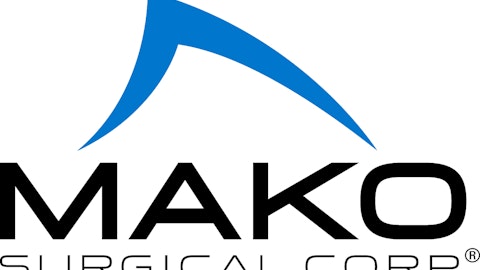Obamacare has brought on intense debate from impassioned advocates both for and against the historical health care legislation. Yet one rare place where bipartisan support has emerged is in condemnation of a controversial tax on medical-device manufacturers that has threatened a highly innovative industry and put thousands of high-paying jobs at risk.

Last month, the U.S. Senate voted on a nonbinding resolution to call for the repeal of the 2.3% tax on sales of medical devices. Although the vote was 79-20 in favor of the resolution, with 33 Democrats supporting it alongside 46 Republicans, the procedural vagaries of the Senate mean that the tax will remain in effect, and with the opposition of key Senate leaders, even the supermajority favoring the tax’s repeal may be powerless to take further action. That’s bad news for the companies that have been saddled with paying the tax.

U.S. Senate. Source: Wikimedia Commons.
Understanding the medical-device tax
At first glance, the 2.3% tax on medical devices seems like a drop in the bucket that many highly profitable device-makers should be able to shoulder easily. Yet what many people don’t understand is that the tax is on each company’s gross sales of medical devices, rather than the profits that those sales generate.
The impact of the tax, therefore, is much larger. Look at medical-device giant Medtronic, Inc. (NYSE:MDT), for instance. It doesn’t get all of its sales from medical devices, but they make up a substantial portion of its overall business. With a reported profit margin of about 21% and assuming that its profits are evenly distributed across its product lines, imposing a tax of 2.3% would be equivalent to a roughly 11% surtax on Medtronic, Inc. (NYSE:MDT)’s income.
The lower a company’s profit margin, the greater the impact of the medical-device tax as a proportion of net income. For the highly profitable robotic surgical giant Intuitive Surgical, Inc. (NASDAQ:ISRG), a medical-device tax of 2.3% equates to less than an 8% additional levy on net income from its da Vinci surgical systems using the same assumptions as above, thanks to the company’s 30% profit margin. But for Stryker Corporation (NYSE:SYK), which has a profit margin of about 15%, the medical-device tax is equivalent to a greater than 15% surtax on income from medical devices.
The companies that are hit hardest by the tax are those that are already unprofitable even before paying the new levy. For up-and-coming robotics-maker MAKO Surgical Corp. (NASDAQ:MAKO), which has already lost $32.5 million on revenue of slightly more than $100 million over the past 12 months, imposing what could be up to $2.3 million in additional medical-device taxes not only adds insult to injury but threatens MAKO Surgical Corp. (NASDAQ:MAKO)’s ability to keep growing.
